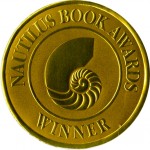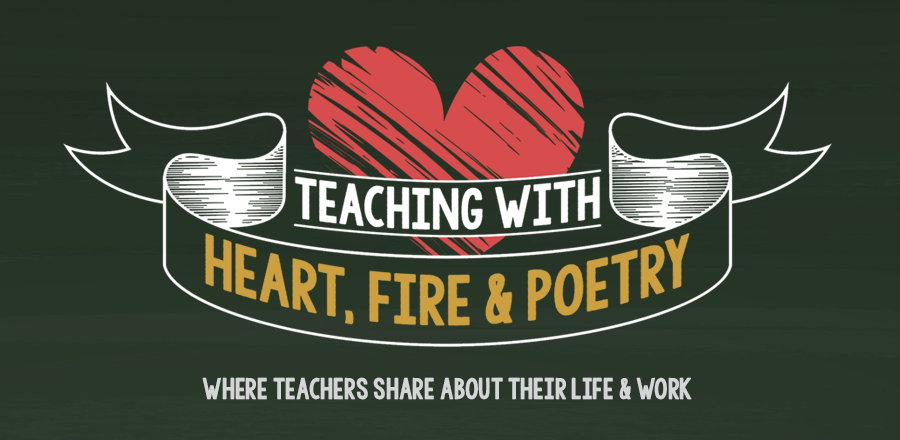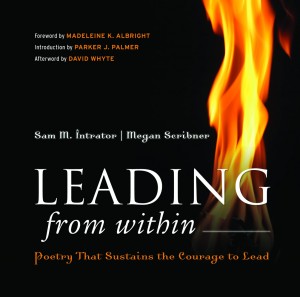Leadership is more than a series of principles or practices—it requires heart, courage, and wisdom, qualities that can be inspired and informed by poetry.
Leading from Within features a beautiful collection of 93 poems, accompanied by a brief personal commentary, leaders reflect on how poetry helps them make sense of the challenges and possibilities in their work. The contributors represent a wide range of professions including Vanguard Group founder John Bogle, MoveOn.org co-founder Joan Blades, several members of Congress, Christian activist Brian McLaren, business guru Peter Senge, and many other leaders from business, medicine, education, nonprofits, law, politics and government, and religion. The poems include works by well-loved poets such as T.S. Eliot, Mary Oliver, William Stafford, Rumi, Langston Hughes, May Sarton, Pablo Neruda, Rainer Maria Rilke, Robert Frost, Rumi, and Wendell Berry.
In addition to this remarkable line-up of leaders, Leading from Within is privileged to have a powerful and moving Foreword by Madeleine K. Albright, an inspiring and thoughtful Introduction by Parker J. Palmer and an illuminating Afterword by David Whyte. See the Table of Contents below.
Royalties from Leading from Within support leadership programs offered through the Center for Courage & Renewal.
To order Leading from Within:
Contact Chris Hegg, chegg@wiley.com, to facilitate a price quote and for ordering information for orders of 35 books or more.
Amazon
Barnes & Noble
Books-A-Million
Indie Bound
Awards for Leading from Within:
 In 2008, Leading from Within received the prestigious Nautilus Gold Book Award for Poetry and the Nautilus Silver Book Award in the Conscious Business / Leadership category. The Nautilus Book Awards “were conceived to recognize and reward a group of world-changing books, and to celebrate how they contribute to positive social change, spiritual growth, conscious living, high-level wellness, and responsible leadership.”
In 2008, Leading from Within received the prestigious Nautilus Gold Book Award for Poetry and the Nautilus Silver Book Award in the Conscious Business / Leadership category. The Nautilus Book Awards “were conceived to recognize and reward a group of world-changing books, and to celebrate how they contribute to positive social change, spiritual growth, conscious living, high-level wellness, and responsible leadership.”
Leading from Within was also a semi-finalist for the first annual 2007 Best Business Book awards chosen by 800-CEO-READ, an online publication that reviews business books. It was selected from nearly 300 titles submitted to the publication’s editorial staff and represents top titles of the year.
To our delight, Leading from Within was used as part of the promotion of the award itself: “With the first deadline to 800-CEO-READ’s 2007 Business Book Awards quickly approaching, we have been receiving a number of books from authors and publishers to be entered into the running of determining the best of the year. The range of titles so far is wide. From Bill Clinton’s Giving to Sam Intrator and Megan Scribner’s Leading From Within: Poetry That Sustains the Courage to Lead, there is already a clear indication that these awards will have the opportunity to review and distinguish both well-known and non-conventional titles +within the publishing industry.”
And in November, 2009, The Banff Center chose Leading from Within for its top 10 list of leadership books. Leadership Development at The Banff Centre offers you our “Top 10” recommendations for great fall reading… to help you cut through the noise and find some books and ideas to inspire your imagination and promote your leadership learning…. how the arts can inspire leadership creativity (Illusion of Leadership and Leading From Within)…
Praise for Leading from Within:
I stumbled upon the book while searching for another business title in a bookstore, and found myself drawn over to a corner, where I sat, reading, feeling as if I’d discovered an unexpected oasis of remembered wisdom, perspective, and strength. And not wanting to put the book down. ‒ Lane Wallace, Read Wallace’s full review at her blog.
It may be difficult to get the news from poems, but it isn’t difficult to get useful advice and inspiration. And many leaders, in private moments, turn to poetry for such solace. … The leaders suggested that “poems help their “listening muscles,” opening them up to be more receptive and less judgmental. Poems also infuse some humanity into their work. ‒ Harvey Schacthter, Read Schacthter’s review at The Globe and Mail.
We expect much of our leaders and project upon them powers and motives that only compound the responsibility they already carry. We hope they will inspire us, but we seldom think about where they find inspiration. This anthology offers their testimony and the result is an anthology that rewards multiple readings. Whether you lead a large corporation or a school PTA, you’ll find it inspiring to listen to leaders praise the poems that inspire them.- James Quay, former Executive Director of the California Council for the Humanities. Read James Quay’s Review of Leading from Within
Reading the collections [Leading from Within and Teaching with Fire] together also brings home a concept that the National Writing Project values deeply: recognizing teachers as leaders in their schools and communities. While Teaching with Fire offers a personal look at teachers’ experiences and inspirations, Leading from Within provides a broader perspective on what it means—and takes—to be a leader…. There is joy to be found in reading these collections for many reasons, but one of the most rewarding aspects of both books is that they offer us a rare glimpse at something both personal and profound: the piece of writing that, above all others, sustains us as well as our friends, co–workers, and fellow teachers.– Carol Griswold Read Griswold’s review at National Writing Project.
Looking for a book for the holidays? We invite you to check out Leading from Within: Poetry that Sustains the Courage to Lead, where leaders share how they turn to and reflect on poetry to make sense of the challenges and possibilities in their work. The poems they chose, and their commentaries, open a window into the challenges leaders face when they try to work by their best lights, to meet both the demands of the world and their own integrity. … This is a book that someone, from any field, can pick up and find inspiration as well as concrete ideas on how to use poetry in their work and life. ‒ PEN Weekly NewsBlast, 2007.
Endorsements for Leading from Within:
Leading from Within is perhaps the most soulful treatment of leadership ever composed. Leadership is first an inner quest, and there is absolutely no better place to explore your inner territory than in the pages of this book. This is an evocative work of art; do yourself an immense favor, and engage with these amazing and diverse leaders and their poems. ‒ Jim Kouzes, coauthor of the bestselling The Leadership Challenge and A Leader’s Legacy
This is a superb collection of poems and deeply personal reflections from a wide range of real leaders. It is a gift to all of us who believe in bringing our hearts to our work. ‒ John Lewis, U.S. Congressman from the 5th District of Georgia
The entries in this wonderful anthology are a joy to read and all the more interesting because of their special meaning to the leaders who recommended them. It is a book that every nonprofit leader should place among those they draw upon for inspiration every day. ‒ Diana Aviv, President and CEO Independent Sector
Leading from Within makes brilliant use of the world’s great poets to inspire us to lead with our hearts as well as our heads. It calls to the deeper purpose and meaning within all of us to use our gifts to serve others. ‒ Bill George, author, True North: Discover Your Authentic Leadership
Leading from Within offers a candid view straight into the heart and soul of leaders striving to do good and effective work in the world. The poems and commentaries remind us that leadership is always deeply personal and chock full of dilemmas that must be addressed by creativity, passion, imagination, and courage. ‒ Jeff Swartz, President and CEO of Timberland
Meet them! Like fraternal twins each of pair of facing pages introduces you to magically close companions – an inspired practitioner and a poet who lit their fuse or touched their soul. I felt like each poem, didn’t just introduce me to a poet and a leader, but touched a deep place in the leader within me. ‒ Dan Mulhern, author of Everyday Leadership: Getting Results in Business, Politics and Life.
Do you want to be a more effective, courageous leader? Then read this book. Maybe then you will realize that you must lead with your heart as well as your mind to inspire people to willingly follow.” ‒ Peter Roy, former president of Whole Foods Market and Co-Author “The Book of Hard Choices”
Table of Contents
Foreword by Madeleine K. Albright
A Note to Our Readers by Sam M. Intrator and Megan Scribner
Introduction by Parker J. Palmer
Called
- Alfred Lord Tennyson’s “Ulysses” reflection by Robert F. Kennedy Jr., president, Waterkeeper Alliance
- Emily Dickinson’s “XXXII” [Excerpt] reflection by Nicole Gagnon, student leader
- Langston Hughes’s “Madam’s Calling Cards” reflection by Kyle Dodson, high school principal
- William Stafford’s “The Way It Is” reflection by Michael Intrator, managing director, emissions trading company
- William Carlos Williams’s “Asphodel, That Greeny Flower” [Excerpt] reflection by Peter S. Temes, president, ILO Institute
- Reinhold Niebuhr’s “Nothing that is worth doing can be achieved in our lifetime” reflection by Rosemary Jordano Shore, founder, ChildrenFirst
- William Blake’s “Songs of Innocence” [Excerpt] reflection by Michael Singleton, director of coaching, Massachusetts Youth Soccer Association
- Gary Snyders’s “For the Children” reflection by Betsy Taylor, founder, Center for the New American Dream
- Theodore Roethke’s “Cuttings later” reflection by Brian D. McLaren, author, speaker, evangelical activist
- S. Eliot’s “Four Quartets” [Excerpt] reflection by Kathleen Kostelny, international consultant on children affected by war and violence
- Marge Piercy’s “To Be of Use” reflection by Martha Bergmark, president, Mississippi Center for Justice
- Eugene McCarthy’s “Ares” reflection by Mary Beth Yarrow, documentary film producer
Defining Moments
- Adrienne Rich’s “In Those Years” reflection by Peter Karoff, founder and chairman, The Philanthropic Initiative
- Wendell Berry’s “A Vision” reflection by Barbara Hummel, corporate and nonprofit facilitator
- William Shakespeare’s “Sonnet 29” reflection by Orli Cotel national publicist, Sierra Club
- Denise Levertov’s “The Avowal” reflection by Craig Dykstra, senior vice president, Lilly Endowment
- Marge Piercy’s “The seven of pentacles” reflection by Jake B. Schrum, president, Southwestern University
- Naomi Shihab Nye’s “The Art of Disappearing” reflection by Ted Falcon, rabbi and radio host
- S. Eliot’s “The Love Song of J. Alfred Prufrock” [Excerpt] reflection by Joseph L. Subbiondo, president, California Institute of Integral Studies
- William Ayot’s “The Contract” reflection by Geoff Bellman, leadership consultant and author
- Amelia Earhart’s “Courage” reflection by John Wimmer, program director, Lilly Endowment
- William Stafford’s “Listening” reflection by David Brooks Andrews, journalist
- Naomi Shihab Nye’s “Adios” reflection by Pamela Seigle, executive director, Center for Courage & Renewal Northeast
Sometimes It Aches
- Ghalib’s “For the raindrop, joy is in entering the river” reflection by Ann Myers, school superintendent
- Mary Oliver’s “Spring Azures” reflection by Bonnie Allen, president, Center for Law & Renewal
- William Blake’s “Auguries of Innocence” reflection by James O”Leary, Catholic priest
- Judy Sorum Brown’s “Trough” reflection by Linda Wolfe, small-business owner
- Rumi’s “Childhood Friends” [Excerpt] reflection by Karen E. Adams, physician and program director
- Langston Hughes’s “Mother to Son” reflection by Estrus Tucker, president and CEO, Liberation Community, Inc.
- Yehuda Amichai’s “End of Elul” reflection by Liz Lerman, artistic director, Liz Lerman Dance Exchange
- Carol Prejean Zippert’s “When You Get Lost” reflection by Tom Beech, president and CEO, Fetzer Institute
- Henry Nouwen’s “Work Around Your Abyss” reflection by John Marston, administrator, Alternative Schools and Character Education
- Gabriela Mistral’s “Daybreak” reflection by Sandra P. Daley, pediatrician and medical school dean
- Mark Nepo’s “Acceptance” reflection by Wayne Muller, minister and author
Pay Attention
- David Wagoner’s “Lost” reflection by Peter Senge, founding chair, Society for Organizational Learning
- Rainer Maria Rilke’s “I want to unfold” reflection by Bill White, pastor, Emmanuel Reform Church
- John O”Donohue’s “Fluent” reflection by Carla M. Dahl, psychotherapist and dean at Bethal Seminary
- Tao Ching’s “#33” reflection by Kevin Fickenscher, executive vice president, Healthcare Transformation at Perot Systems
- David Whyte’s “The Opening of Eyes” reflection by Hanna B. Sherman, physician and medical educator
- William Ernest Henley’s “Invictus” reflection by David J. Garren, professor, U.S. Naval Academy
- Nevin Compton Trammell’s “I’m Tired” reflection by Karen Lee Turner, pastoral musician
- Yehuda Amichai’s “The Diameter of the Bomb” reflection by Howie Schaffer, media spokesperson, Pubic Education Network
- Rainer Maria Rilke’s “The Panther” reflection by David C. Leach, physician and executive director of Accreditation Council for Graduate Medical Education
- William Stafford’s “With Kit, Age 7, At the Beach” reflection by Lee Rush, founder and executive director, justCommunity, Inc.
- Pablo Neruda’s “XXXI” reflection by Tony Deifell, founding board member, KaBOOM!
- William Butler Yeats’s “The Lover Pleads with Friends for Old Friends” reflection by Jim McDermott, congressman
- Robert Frost’s “Mending Wall” reflection by Adam Bunting, high school administrator
The Real Bottom Line
- Mary Oliver’s “The Ponds” reflection by James A. Autry, author and former Fortune 500 executive
- Wallace Stevens’s “The Pleasures of Merely Circulating” reflection by Joan Blades, founder, MoveOn.org
- Robert Frost’s “The Road Not Taken” reflection by James E. Rogers, president and CEO, Energy Corporation
- Charles Simic’s “Stone” reflection by Dean Conway, middle school teacher and coach
- Wendell Berry’s “Sabbaths” reflection by Jay F. Smith, superintendent, United Methodist Church
- H. Auden’s “After Reading a Child’s Guide to Modern Physics”
reflection by Eric Walsh, physician and associate chairman of Family Medicine - Paul Mariani’s “The Peaceable Kingdom” reflection by Robert (Chip) Wood, elementary school principal
- Stephen Spender’s “The Truly Great” reflection by Betty Sue Flowers, director, Lyndon Baines Johnson Presidential Library and Museum
- Rabindranath Tagore’s “The Grasp of Your Hand” reflection by L. J. Rittenhouse, president, and beyond Communications
- Mary Oliver’s “What I Have Learned So Far” reflection by Paul Batalden, physician and medical educator
- Billy Collins’s “The Night House” reflection by Sterling K. Speirn, president and CEO, W. K. Kellogg Foundation
Dare to Endure
- Robert Browning’s “Andrea del Sarto” reflection by Harry Barnes, former ambassador, Romania, India, and Chile
- Ezzeddin Nasafi’s “Oh, my friend” reflection by Charles Gibbs, executive director, United Religions Initiative
- Jack Gilbert’s “The Abnormal Is Not Courage” reflection by Jim Burke, author and high school teacher
- Ibn Arabi’s “There was a time I would reject those” reflection by Eboo Patel, founder and executive director, Interfatih Youth Corp.
- Winston O. Abbott’s “Sing with the Wind” reflection by Annie Goeke de La Bouillerie, co-director, Earth Rights Institute
- Rumi’s “What is This Fragrance” reflection by Jamal Rahman, Muslim Sufi minister at Interfaith community church
- Reb Nachman’s “The entire world is a very narrow bridge” reflection by Jaime Banks, communications researcher
- Seamus Heaney’s “The Cure at Troy” [Excerpt] reflection by Doug Tanner, founder, The Faith & Politics Institute
- Kenneth Patchen’s “In Order To” reflection by Peter Pollard, public education director, Stop It Now!
- William Butler Yeats’s “Earth, Fire and Water” reflection by Elizabeth A. Keene Reder, bereavement coordinator, John Hopkins Children’s Center
- Holly Near’s “The Rock Will Wear Away” [Excerpt] reflection by Tammy Baldwin, congresswoman
Leading Together
- Robert Creeley’s “The Warning” reflection by Dan Wieden, founder, Wieden + Kennedy ad agency
- Langston Hughes’s “Let America Be America Again” [Excerpt] and Countee Cullen’s “Yet Do I Marvel” [Excerpt] reflection by Linda K. Bowen, executive director, Institute for Community Peace
- Walt Whitman’s “Song of the Open Road” [Excerpt] reflection by Janet Tiebout Hanson, founder, 85 Broads
- Louis MacNeice’s “Snow” reflection by Irene Martin, Episcopal priest and commercial fisher
- Emily Dickinson’s “I dwell in Possibility” reflection by Eileen Quinn, senior communications director, PATH
- Wislawa Szymborska’s “A Note” reflection by Billy Shore, executive director, Share our Strength
- Claudia Schmidt’s “For the Birds / Replenish” reflection by Molly Anderson, food systems scholar
- Liz Rosenberg’s “In the end we are all light” reflection by Ted Lord, president and CEO, Humanities Washington
- May Sarton’s “All Souls” reflection by Patricia E. de Jong, minister, First Congregational Church of Berkeley
- Hafiz’s “How do I listen?” reflection by Pat Moore Harbour, founding director, Healing The Heart of Diversity
- Emily Dickinson’s “#1129” reflection by Thomas B. Coburn, president, Naropa University
- Robert Service’s “The Spell of the Yukon” [Excerpt] reflection by Linda Chamberlain, epidemiologist and founding director, Alaska Family Violence Prevention Project
- Martin Luther King Jr.’s “If you want to be important. . . .”reflection by Jim Kielsmeier, founder, president, and CEO, National Leadership Youth Council
Back At It
- Thich Nhat Hanh’s “For Warmth” reflection by Henry Emmons, physician and author
- Robert Frost’s “Directive” reflection by Tom Allen, congressman
- Judy Sorum Brown’s “Fire” reflection by Becky van der Bogert, school superintendent
- Daisy Zamora’s “Song of Hope” reflection by Kathleen Gille, former congressional aide
- Lao Tzu’s “The uses of not” reflection by Peter Schneider, architect
- Naomi Shihab Nye’s “Kindness” reflection by Lois Capps, congresswoman, 23rd district of California
- Robert Hayden’s “Those Winter Sundays” reflection by Brian Dunlap, high school administrator
- William Wordsworth’s “Tintern Abbey” reflection by Carol Tecla Christ, president, Smith College
- Wendell Berry’s “The Peace of Wild Things” reflection by Carolyn J. Lukensmeyer, president and founder, AmericaSpeaks
- William Stafford’s “Silver Star” reflection by Diana Chapman Walsh, president, Wellesley College
- Alfred Lord Tennyson’s “Ulysses” [Excerpt] reflection by John C. Bogle, founder, The Vanguard Group
Leading with Fire: Using Poetry in Our Life and Work
Afterword by David Whyte
Gratitudes
Center for Courage & Renewal
The Editors
Credits


Leave a Comment